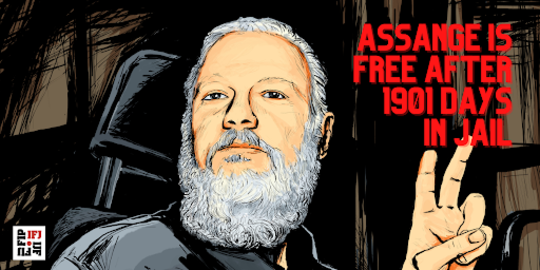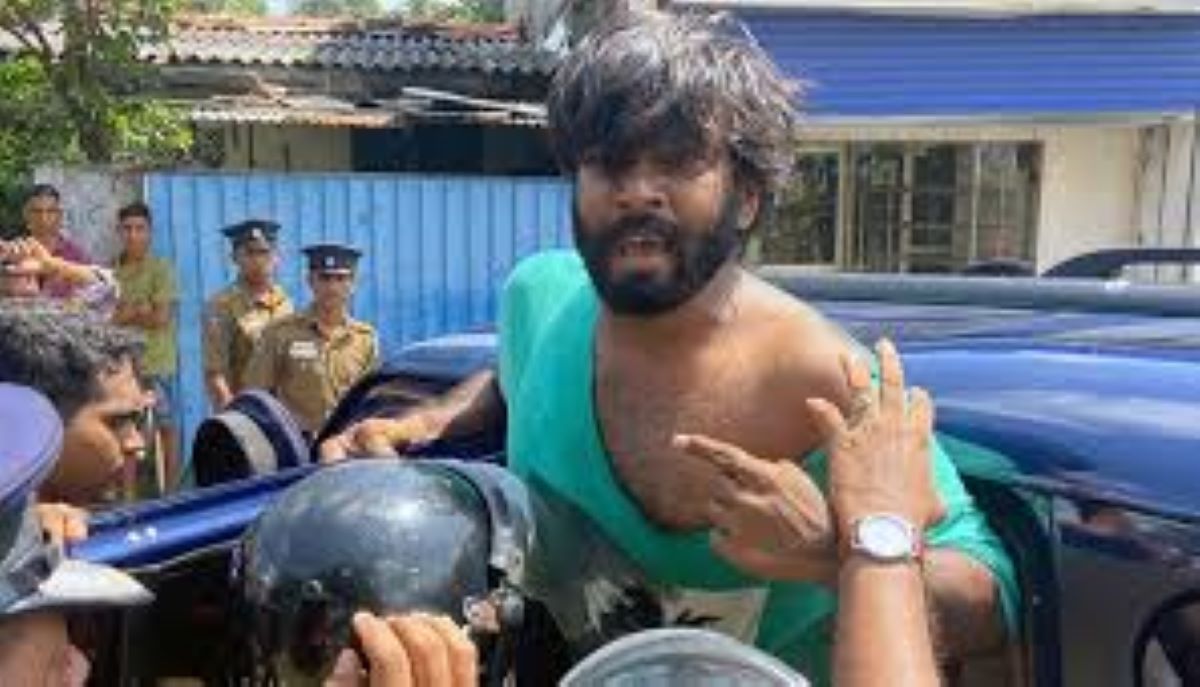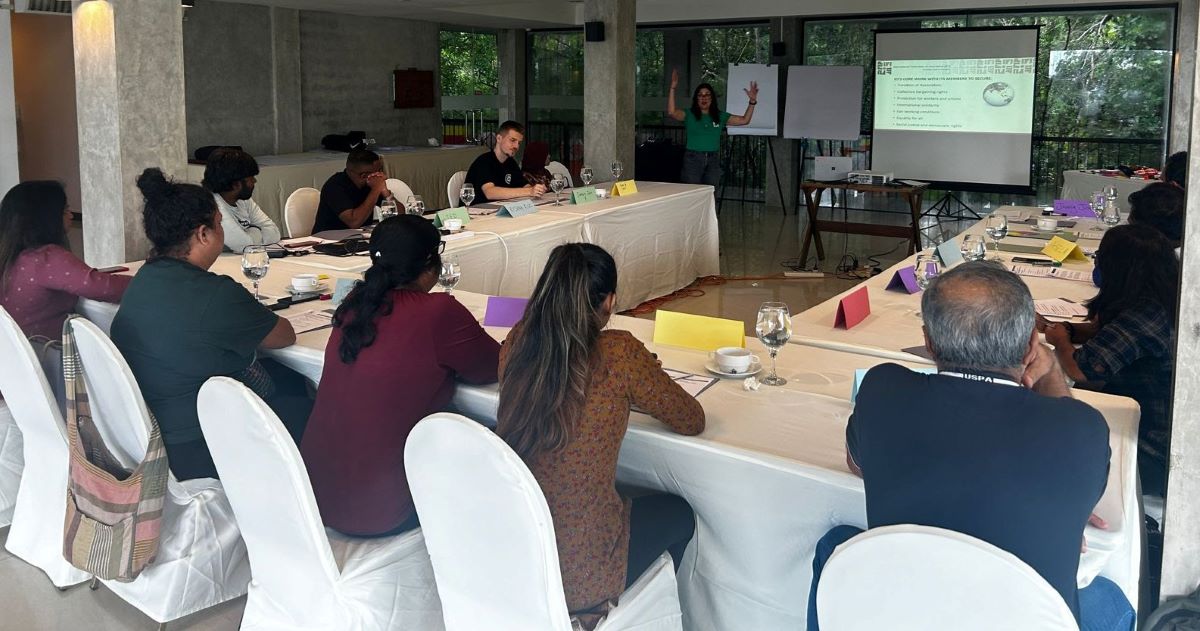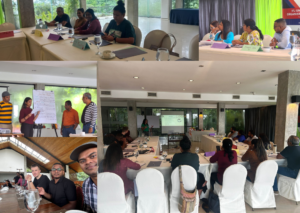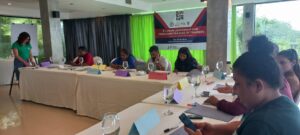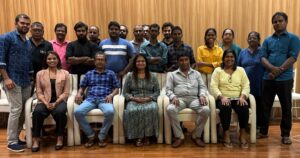
The Federation of Media Employees Trade Union under the guidance of the International Federation of Journalists, organized the leadership training and completed the two-day workshops at the Thevni Holiday Resorts on 13& 14th October 2024 outside of Colombo, Sri Lanka.
The participants representing all provinces and mainstream media of the Island with 07 women journalists and 15 journalists participated in this Leadership Development Training workshop.
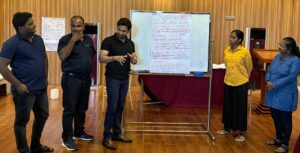
It covered the areas of what a union is, what the role of a union is, how to develop the union, the role of leadership, online organizing the union, etc.
 The IFJ trained the trainers with TOT under this program. Ms.Gouri Bathan, Ms. Shareefa Tahir, Ms.Indira Nawagamuwa, Mr Rizwan Segue Mohideen, and Mr. Tharidu Uduwaragedara shared their experience and expertise knowledge to train the participants in this workshop.
The IFJ trained the trainers with TOT under this program. Ms.Gouri Bathan, Ms. Shareefa Tahir, Ms.Indira Nawagamuwa, Mr Rizwan Segue Mohideen, and Mr. Tharidu Uduwaragedara shared their experience and expertise knowledge to train the participants in this workshop.
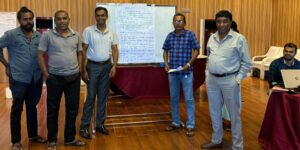
Agenda as follow
Day 01 –
Introduction with Explaining Agenda (Indira)
Icebreaker (Sherry- Indira)
What is Leadership – 40 minutes – Tharindu
Leading unions and Members – 30 minutes – Sherry
Union Purpose and Leader Responsibilities – 40 minutes – Sherry
Prioritizing issues and Goals – Tharindu
Developing Strong Leaders and Activists – Tharindu And Sherry
Day 2 –
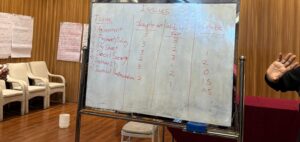
Communications – 40
Organizing online – 90 minutes – Rizvan
Collective Power and Action – 40 minutes – Gowri
Building and Sharing Responsibilities – 60 minutes – Gowri
Leadership Presentations – 90 minutes (With Rizvan and Gowri)
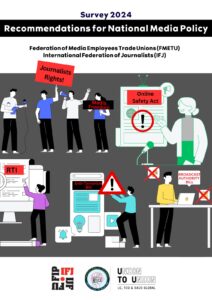
In addition, they discussed that they have to implement in the future the National Media Policy framework they did earlier. The purpose of the survey was to consult representatives from the media and journalists’ community island-wide on recommendations for national media policy development
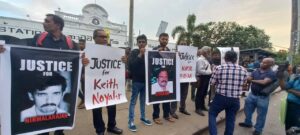 How can we forget the individuals who struggled for change, challenged governments and envisioned a better tomorrow? How can we overlook those who sacrificed their lives, faced brutal attacks, endured torture, and suffered countless atrocities simply for speaking the truth?
How can we forget the individuals who struggled for change, challenged governments and envisioned a better tomorrow? How can we overlook those who sacrificed their lives, faced brutal attacks, endured torture, and suffered countless atrocities simply for speaking the truth?



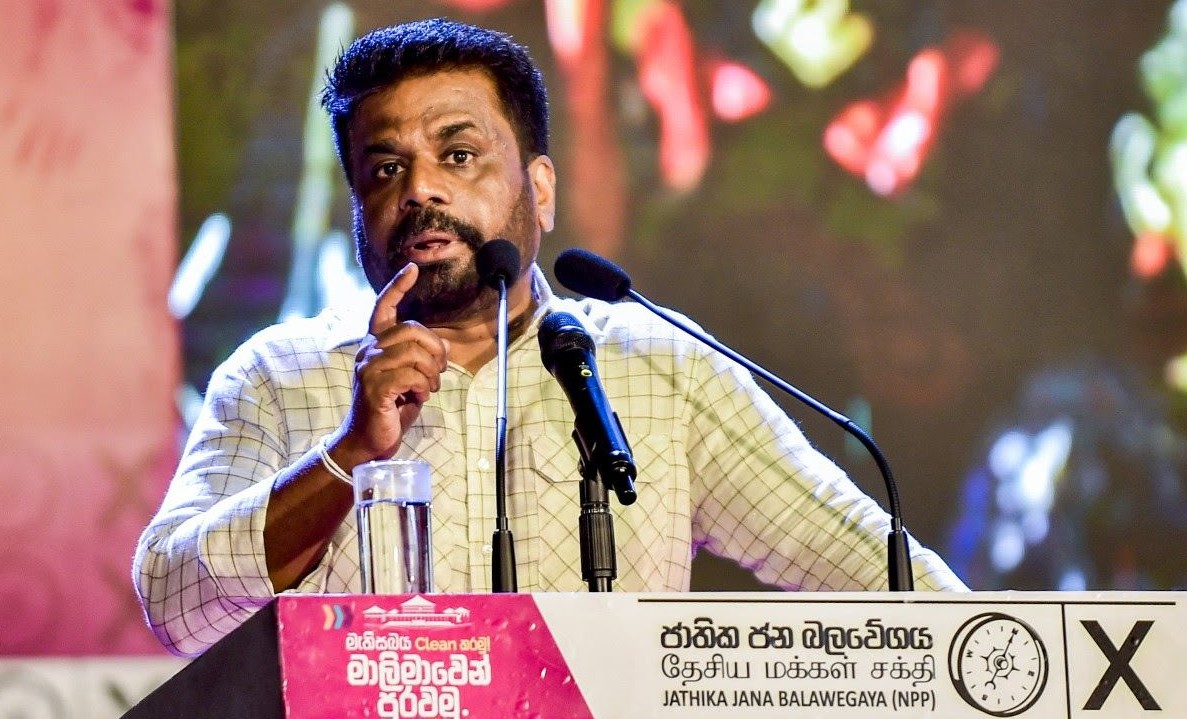


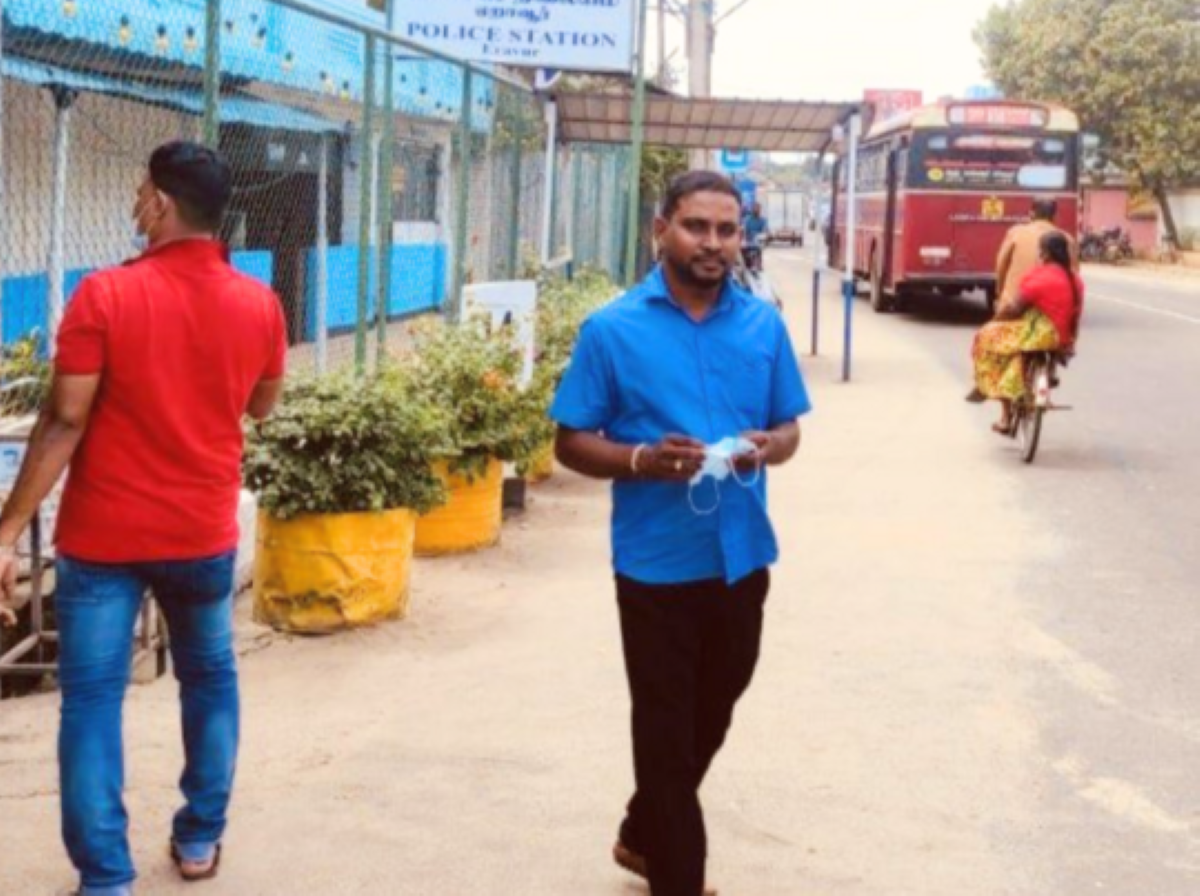
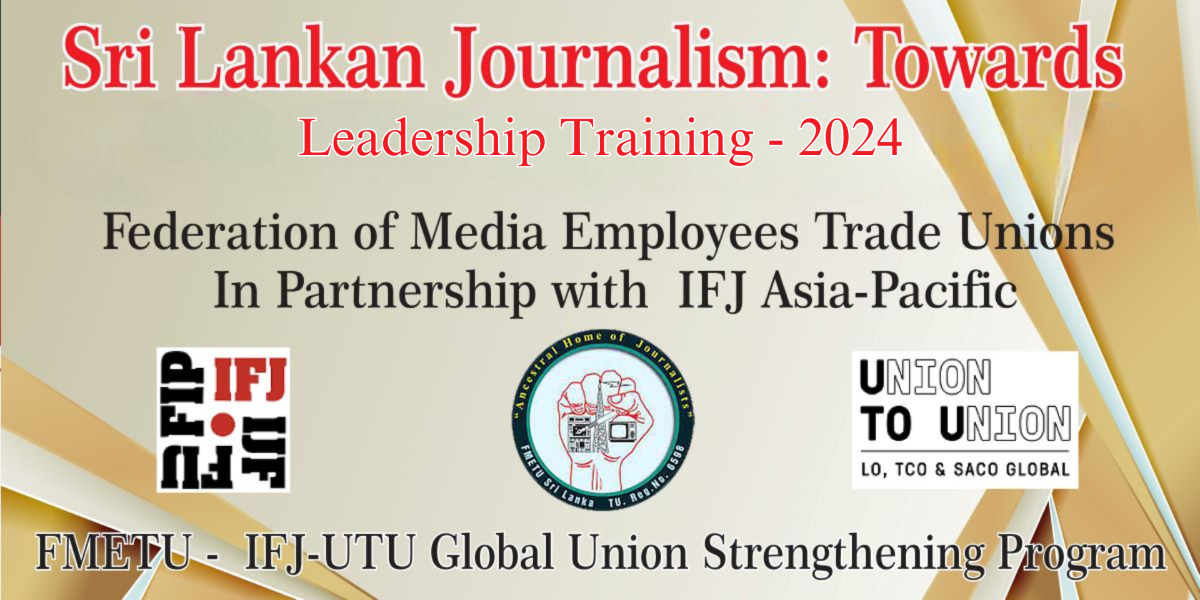


 The IFJ trained the trainers with TOT under this program. Ms.Gouri Bathan, Ms. Shareefa Tahir, Ms.Indira Nawagamuwa, Mr Rizwan Segue Mohideen, and Mr. Tharidu Uduwaragedara shared their experience and expertise knowledge to train the participants in this workshop.
The IFJ trained the trainers with TOT under this program. Ms.Gouri Bathan, Ms. Shareefa Tahir, Ms.Indira Nawagamuwa, Mr Rizwan Segue Mohideen, and Mr. Tharidu Uduwaragedara shared their experience and expertise knowledge to train the participants in this workshop.


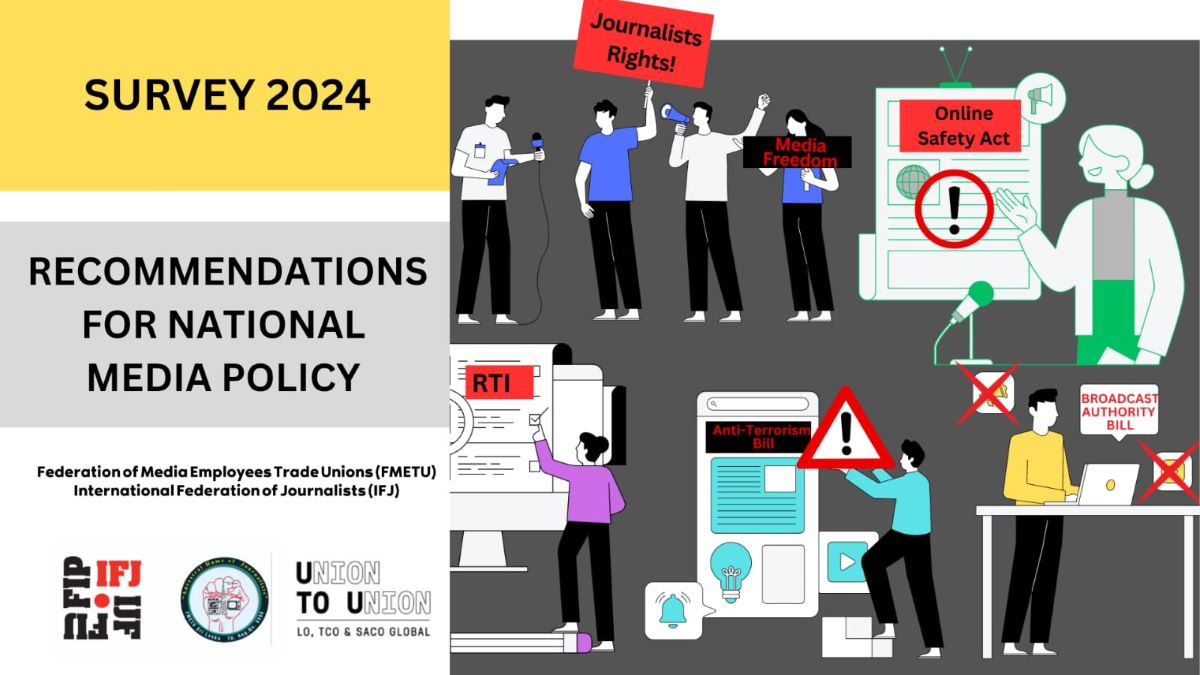
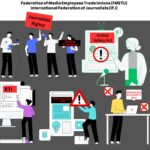 On September 5, 2024, the Federation of Media Employees’ Union, guided by the International Federation of Journalists, presented an investigative report that covered the entire island. Journalists, media organization leaders, and intellectuals with interest in media contributed to this extensive study.
On September 5, 2024, the Federation of Media Employees’ Union, guided by the International Federation of Journalists, presented an investigative report that covered the entire island. Journalists, media organization leaders, and intellectuals with interest in media contributed to this extensive study.